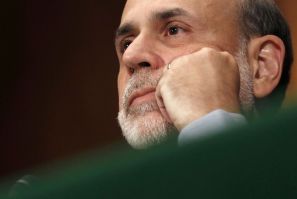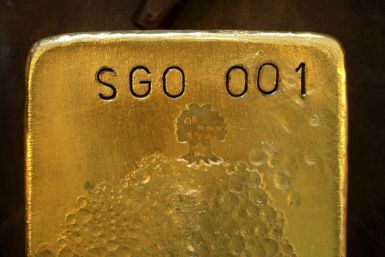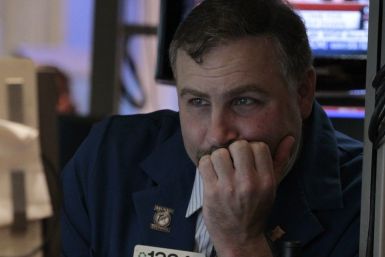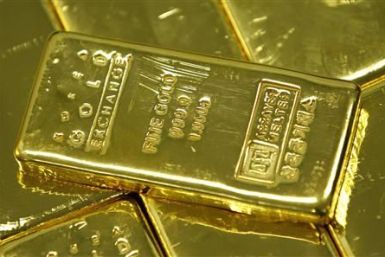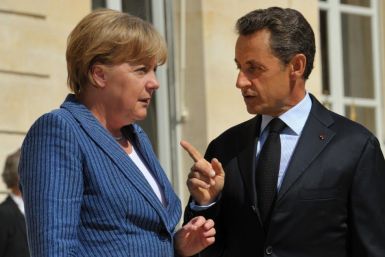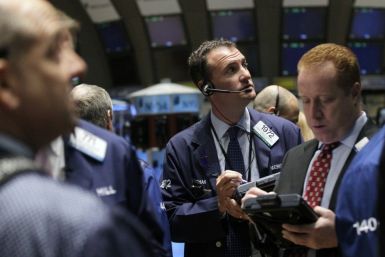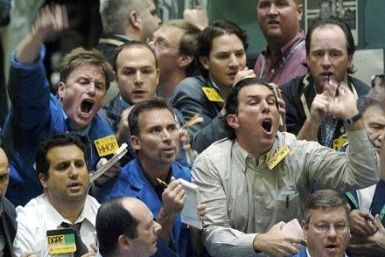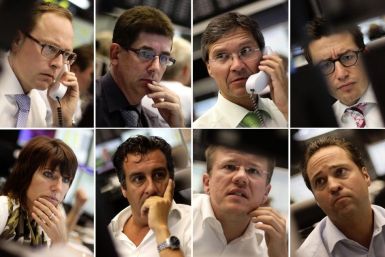Gold charged to a record high early Friday in electronic trading as a host of bad economic news from around the world drove investors away from stocks for the safety of the yellow metal.
Global stocks ceded more ground Friday, hurt by mounting concerns the U.S. economy is heading into another recession and as some European lenders faced a short-term funding crunch, highlighting the risk of another banking crisis.
The United States and European Union called on Syrian President Bashar al-Assad to step down Thursday, and U.S. President Barack Obama accused him of torturing and slaughtering his own people in what U.N. officials said could be crimes against humanity.
The United States and European Union called on Syrian President Bashar al-Assad to step down on Thursday and President Barack Obama accused him of torturing and slaughtering his own people in what U.N. officials said could be crimes against humanity.
Gold close at a fresh high Thursday as investors sought safety from fresh evidence that the U.S. economy is struggling and not-so fresh evidence that Europe's debt problems are far from over.
Here are five of the most important reasons that are pressuring U.S. stocks on Thursday.
Gold rallied to its second record high in a week on Thursday, driven by growing investor unease over the outlook for the U.S. economy after data showed an unwelcome pickup in inflation, and over the lack of resolution to the European debt crisis.
Gold rallied back toward record highs above $1,800 an ounce on Thursday, driven by unease over the lack of a solution to the European debt crisis and sluggish growth in the developed world which has shaken investor confidence in stocks, bonds and hard currencies.
The leaders of France and Germany, under pressure to counter a debt market crisis in Europe, have agreed to float proposals in September for a tax on financial transactions and push for closer joint governance of economic policy, French President Nicolas Sarkozy said on Tuesday.
Debt concerns in Europe and a tepid U.S. economy have made for a bumpy stock market of late, to day the least. However, because one-day events can deceive, let's pull the lens back and do a condensed, cross-methodological analysis of the Dow Jones Industrial Average, to see if it reveals any long-term clues.
Did last week?s wild stock market swings make you concerned that your 401K will soon turn into a ?201K? ? Then it sounds like it?s a good time to get an assessment of the U.S. economy from two respected economists, Paul Krugman and Irwin Kellner.
This week investors should focus on the performance of European sovereign debt markets.
Automation will ultimately stimulate the economy and create jobs in the long-term.
Two La Liga titans square off this weekend
There is one thing that the doomsayers have gotten wrong: They aren?t nearly worried enough.
Portugal still faces some tough challenges but is on track to meet this year's budget deficit goal despite a shortfall in performance so far, officials from the European Union and IMF said on Friday.
Syrian forces killed at least five people in an assault on two northern towns on Thursday, activists said, pursuing a military campaign to crush protests against President Bashar al-Assad despite new U.S. sanctions and regional calls to end bloodshed.
Some $4 trillion has been wiped off the value of world stocks this month on concerns the euro zone debt crisis is spreading to Italy and Spain and hurting Europe's banking system, and the global economy is falling into recession.
Stocks fell sharply on Wednesday, wiping out most of the previous session's gains, on fears of tumult in the French banking sector, which has significant exposure to shaky European debt.
Federal Reserve policymakers began meeting on Tuesday under growing pressure to take some type of action to stem a financial market meltdown linked to fears of a new U.S. recession.
The European Central Bank said on Sunday it would "actively implement" its controversial bond-buying programme to fight the euro zone's debt crisis, signaling it will buy Spanish and Italian government bonds to halt financial market contagion.
The European Central Bank waved its big fire hose at blazing bond markets, then turned on a puny sprinkler.





